Abstract
We have prepared photosynthetic reaction centers from Rhodopseudomonas spheroides and have studied the fluorescence of the photochemical electron donor, P870. The yield of this fluorescence rises at low redox potential, presumably because the photochemical electron acceptor becomes reduced and the photochemical utilization of excitation energy is then prevented. The redox titration curve for this increase in the fluorescence has a shape corresponding to the transfer of one electron. The midpoint potential is -0.05 volt, independent of the pH from 6.5 to 8.8. The amplitude of a light-induced absorbance change at 280 nanometers varies with redox potential and shows, at pH 7.5, a midpoint potential of 0.00 volt. These studies indicate that the primary photochemical electron acceptor is not ubiquinone and is not the substance responsible for the absorbance change at 280 nanometers.
Full text
PDF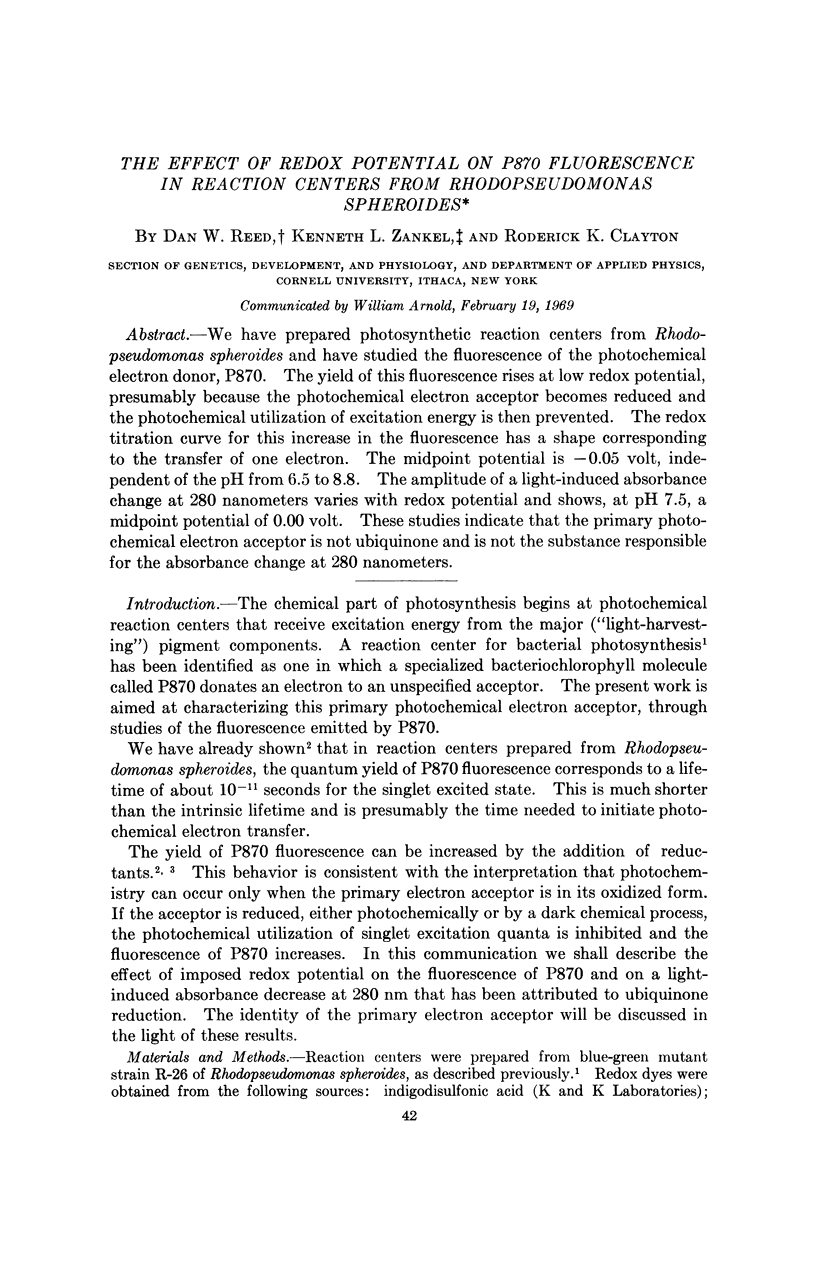
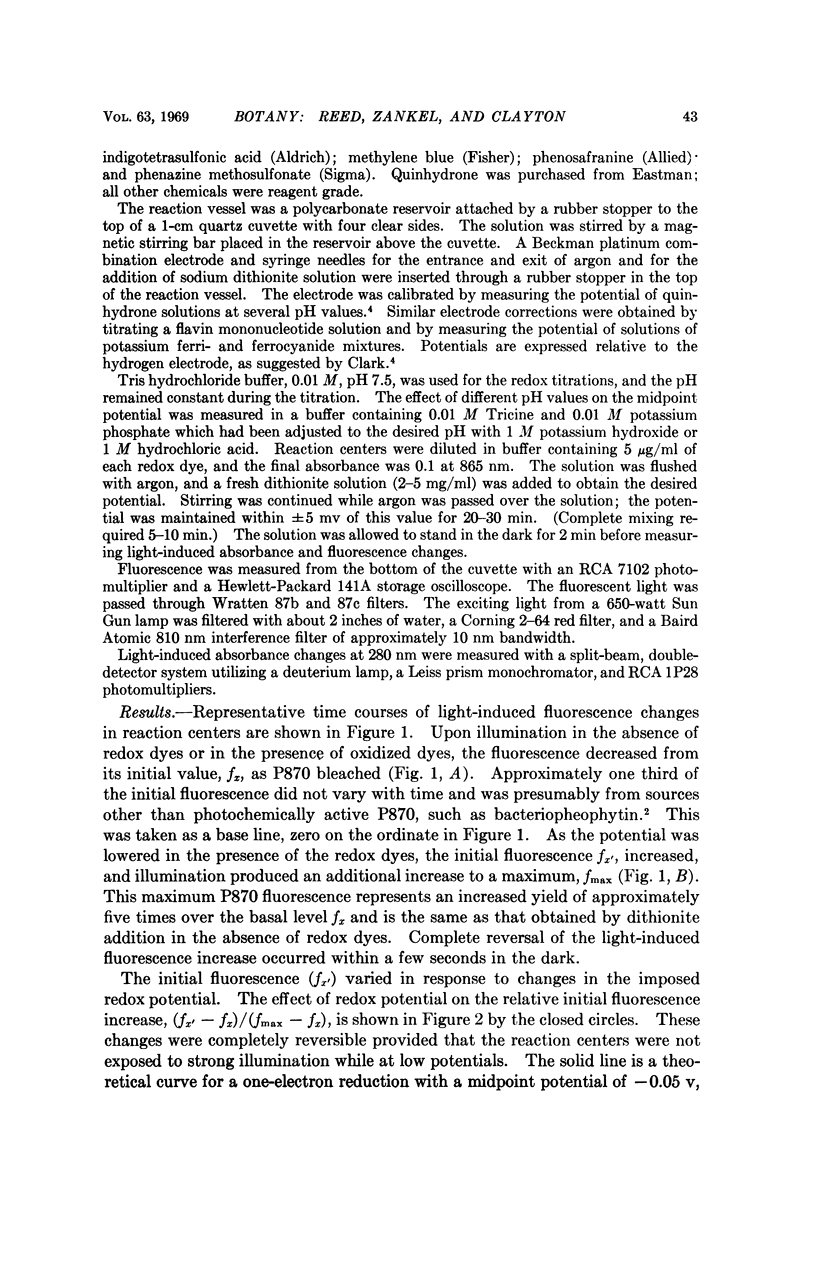
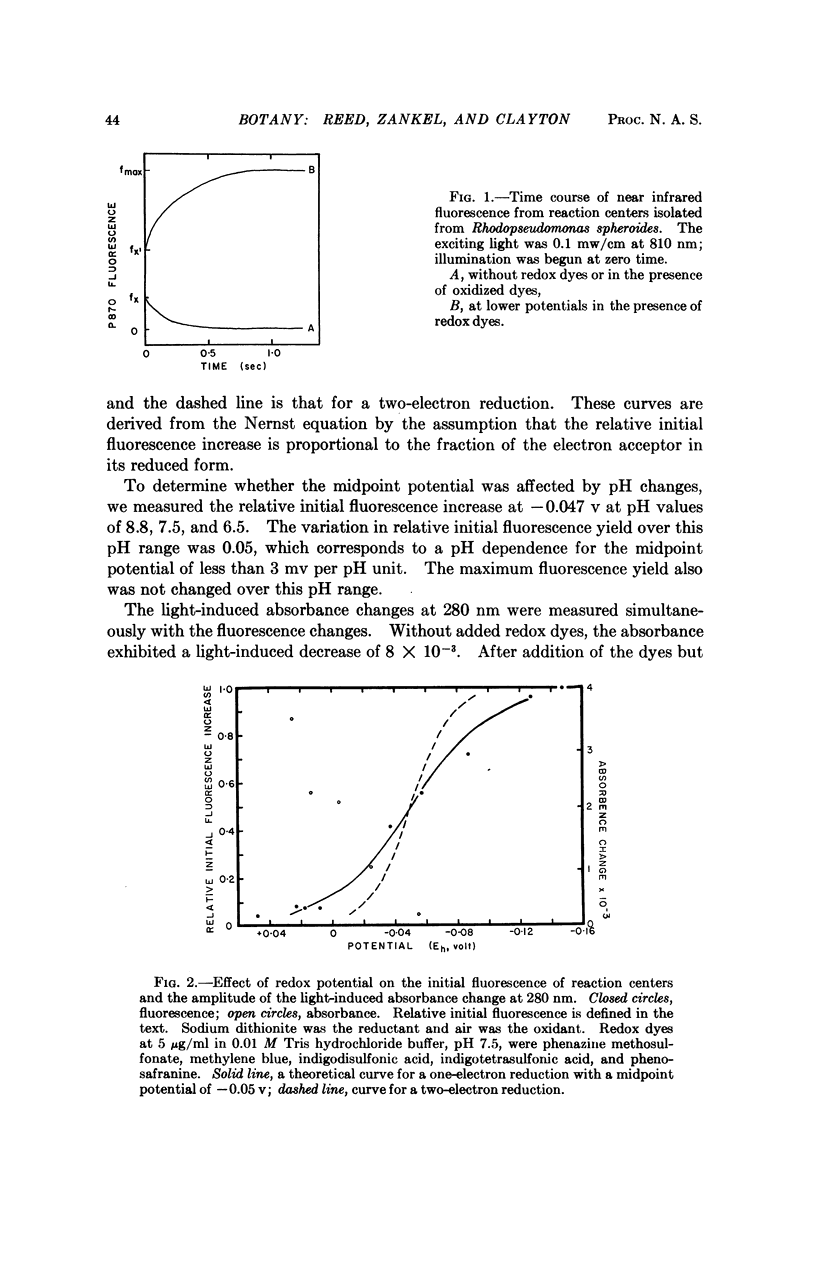
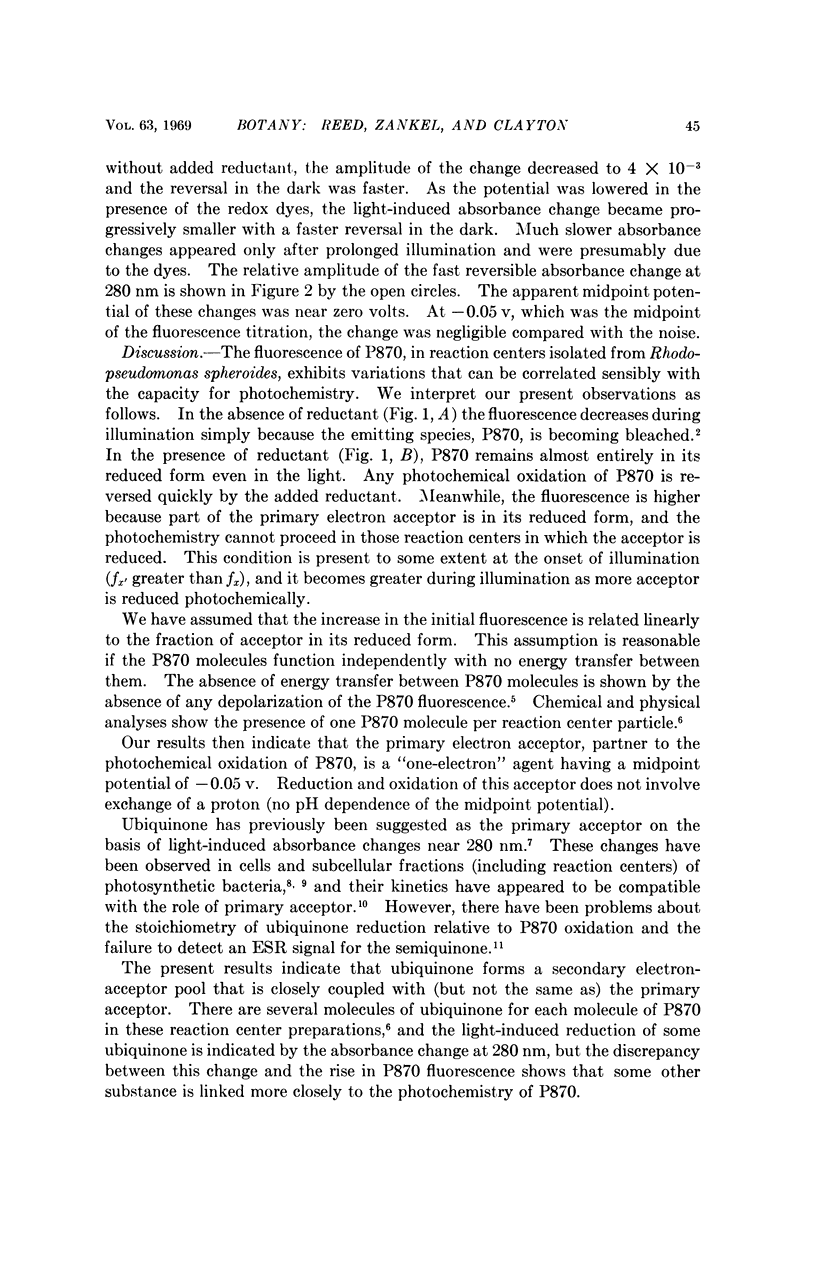
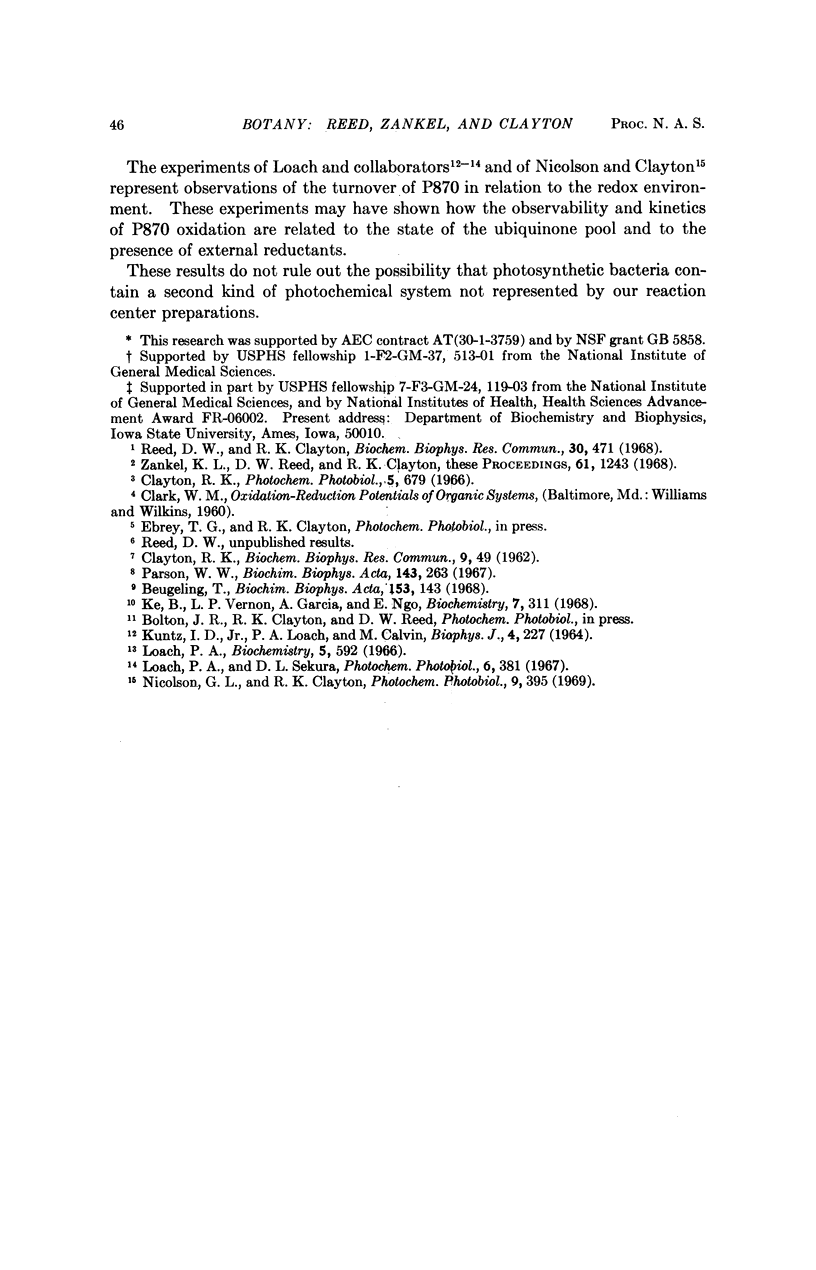
Selected References
These references are in PubMed. This may not be the complete list of references from this article.
- CLAYTON R. K. Evidence for the photochemical reduction on coenzyme Q in chromatophores of photosynthetic bacteria. Biochem Biophys Res Commun. 1962 Sep 25;9:49–53. doi: 10.1016/0006-291x(62)90085-2. [DOI] [PubMed] [Google Scholar]
- KUNTZ I. D., Jr, LOACH P. A., CALVIN M. ABSORPTION CHANGES IN BACTERIAL CHROMATOPHORES. Biophys J. 1964 May;4:227–249. doi: 10.1016/s0006-3495(64)86779-5. [DOI] [PMC free article] [PubMed] [Google Scholar]
- Ke B., Vernon L. P., Garcia A., Ngo E. Coupled photooxidation of bacteriochlorophyll P890 and photoreduction of ubiquinone in a photochemically active subchromatophore particle derived from Chromatium. Biochemistry. 1968 Jan;7(1):311–318. doi: 10.1021/bi00841a039. [DOI] [PubMed] [Google Scholar]
- Loach P. A. Primary oxidation-reduction changes during photosynthesis in Rhodospirillum rubrum. Biochemistry. 1966 Feb;5(2):592–600. doi: 10.1021/bi00866a028. [DOI] [PubMed] [Google Scholar]
- Nicolson G. L., Clayton R. K. The reducing potential of the bacterial photosynthetic reaction center. Photochem Photobiol. 1969 Apr;9(4):395–399. doi: 10.1111/j.1751-1097.1969.tb07305.x. [DOI] [PubMed] [Google Scholar]
- Parson W. W. Observations on the changes in ultraviolet absorbance caused by succinate and light in Rhodospirillum rubrum. Biochim Biophys Acta. 1967 Jul 5;143(1):263–265. doi: 10.1016/0005-2728(67)90128-4. [DOI] [PubMed] [Google Scholar]
- Reed D. W., Clayton R. K. Isolation of a reaction center fraction from Rhodopseudomonas spheroides. Biochem Biophys Res Commun. 1968 Mar 12;30(5):471–475. doi: 10.1016/0006-291x(68)90075-2. [DOI] [PubMed] [Google Scholar]
- Zankel K. L., Reed D. W., Clayton R. K. Fluorescence and photochemical quenching in photosynthetic reaction centers. Proc Natl Acad Sci U S A. 1968 Dec;61(4):1243–1249. doi: 10.1073/pnas.61.4.1243. [DOI] [PMC free article] [PubMed] [Google Scholar]


